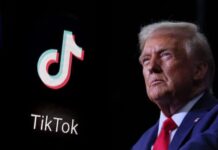A high-profile fraud trial that Charlie Javice, the founder of the financial aid startup Frank, “is bringing to JPMorgan Chase will begin on 17-18 Feb 2025, in a New York federal court.” The case, which centers on accusations of a $175 million scam, has garnered wide interest, exposing the underbelly of Silicon Valley’s “fake it till you make it” ethos. Here’s what you need to know about this legal showdown.
The Rise and Fall of Frank
Charlie Javice, previously hailed as a Forbes 30 Under 30 entrepreneur, launched Frank in 2017 to help students manage the complexities of applying for financial aid. By 2021 she had managed to sell the startup to JPMorgan Chase for $175 million, personally walking away with $28 million, and a prominent position at the bank. However, the deal soon fell apart when JPMorgan learned that 4.25 million students, the size of Frank’s claimed user base, was grossly inflated. The truth was, that the platform had 300,000 users.
The Allegations
JPMorgan accuses Javice and her co-defendant, Frank’s chief growth officer Olivier Amar, of conspiring to inflate the company’s user numbers to nail down the acquisition. Javice then hired a data scientist and the two of them created 4.2 million falsified customer records, including information provided to the bank as part of negotiations. The duo also reportedly bought a list of 4 million college students from the open market to trick JPMorgan.
The bank’s suspicions were borne out when a marketing campaign aimed at Frank’s purported users produced lackluster results. Just 28% of emails made it to inboxes and just 1.1% were opened, far below expectations.
Also read: Social Security COLA 2025: 2.5% Increase & February Payments
The Legal Battle
Javice and Amar are charged with conspiracy to commit wire and bank fraud, wire fraud, and securities fraud. Javice could face up to 50 years in prison if convicted. Both of the defendants have pleaded not guilty, and Javice’s defense attorneys argue that JPMorgan is experiencing “buyer’s remorse” after the acquisition and trying to pin blame on her. They also allege that the bank did not conduct the appropriate due diligence before the acquisition.
Whether Javice knowingly misled JPMorgan is one of the trial’s major sticking points. Her legal team intends to call expert witnesses to discuss the bank’s due diligence process, and prosecutors plan to introduce evidence of the false customer data.
The Theranos Connection
The case has been likened to the Theranos scandal in which Elizabeth Holmes was convicted of defrauding investors. (Note that Holland noted on his website the irony of Javice herself making comments about Holmes’ case in text messages, calling Holmes’ conviction “ridiculous” and blaming investors for letting a “19-year-old go rogue.”) But Judge Alvin Hellerstein has determined that this evidence cannot be used in court because it risks prejudicing the jury.
A Divided Defense
Javice and Amar will be tried together, despite efforts by her lawyers to separate the cases, adding to the drama. Amar’s defense will be “antagonistic,” or attempting to blame Javice for the alleged fraud, or so it will be if he follows the same strategy he outlined when he was charged, the prosecution told the judge. This has sparked concern about fairness, with Javice’s team saying they’re blindsided by the strategy that Amar has come up with.
The Broader Implications
The trial is more than a courtroom battle; it’s a cautionary tale for startups and their investors. It underscores the dangers of overhyping a company’s success and the need for rigorous due diligence. For JPMorgan, the case has been a public-relations hit, with chief executive Jamie Dimon describing the acquisition of Frank as “a huge mistake”.
A potential outcome of the trial could also determine how regulators and investors deal with startup valuations and acquisitions going forward. “This arrest should serve as a warning to entrepreneurs who lie to further their businesses that their lies will catch up to them,” U.S. Attorney Damian Williams said in a statement.
What’s Next?
The trial is expected to last three to four weeks, with opening statements planned for Feb. 20. Among key witnesses will be the data scientist who was allegedly hired to generate fake records and an investor who pulled out of consideration to fund the company over concerns Frank dramatically inflated numbers.
Javice’s defense team, headed by high-profile attorneys Jose Baez and Ronald Sulivan, plans to argue that the materials given to JPMorgan were legally obtained and did not amount to fraud. In the meantime, prosecutors will have to prove that Javice and Amar intentionally misled the bank to get money.








